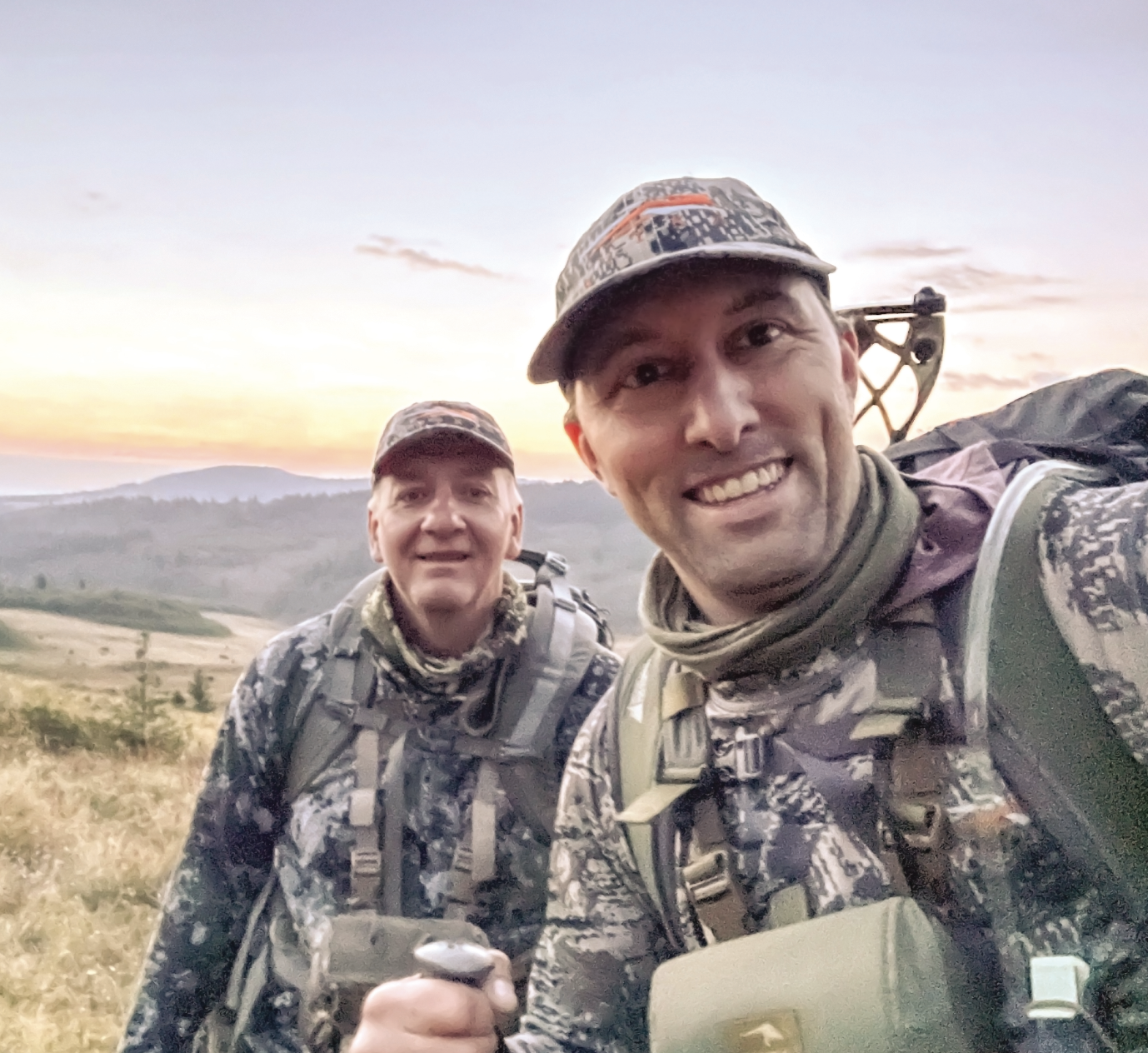
6 minute read
Meet me at the trailhead?
Who you choose to hunt with matters
► article and photos by Joshua P. Martin
I met my hunting partner Dave on the archery range at the Alberta Hunter Education Instructors’ Association (AHEIA) Calgary Firearms Centre a few years ago. At the time, we were both dialing in our bows for the upcoming season. I was a complete newbie to archery and still a bit green to hunting in general. Dave, as I later found out, was a seasoned archer full of knowledge from a lifetime of hunting experiences.
At some point, while we walked to and from the targets to retrieve our arrows, Dave asked me about my opinion on bear spray. Originally from Manitoba, he knew black bears but wasn’t too sure about how to handle a grizzly. As it turned out, we were both anxious about hunting the bow season solo. An hour later, we were exchanging numbers and planning to meet on opening day in Kananaskis, where bear sightings are common.
I was new to Calgary and mostly hunting alone. Work colleagues had taken me on some hunts, and I had connected with several guys through “looking for a hunting partner” posts on the usual forums. But I had yet to establish a consistent go-to. You know, that person who if you suddenly find yourself with a day off you call and know they’ll be waiting for you at the trailhead?

It wasn’t that I didn’t enjoy hunting with them, that we didn’t have success, or that we wouldn’t hunt together again. It was more complicated than that. I came to realize that finding someone to hunt with was easy— finding a hunting partner was hard. So much importance is put on choosing the right calibre, gear, and location for a successful hunt and yet, by comparison, so little attention is given to who we hunt with.
Perhaps that’s because many hunters have built-in partners from day one through parents, siblings, or childhood friends. If you’re like me though, a late-onset hunter or new to an area, finding one can be as hard as finding a trophy bull on the last day of the season. So what makes a great hunting partner and how do you know when you’ve found one? I wasn’t too sure myself, but it didn’t take more than my first hunt with Dave to realize what I’d been searching for in a partner, and by extension, what I needed to contribute as one.
The first thing that struck me about Dave was how open he was with me. At the range he offered up his knowledge, and on that first hunt he suggested we meet at one of his favourite spots. Now I’m not so naive to think he gave away some deer mecca no one else knew about—it was on public land after all—but when the norm for a new hunter is being met with cautious acceptance and cryptic details, it was refreshing to skip the trust falls and get right to having fun, learning from one another, and pursuing game.
The other thing that was abundantly clear that day was how, despite having a few years on me, he was much fitter. I kept up and held my own, but it wasn’t easy. Western big game hunting is tough and, when putting in the work makes the difference between failure and filling the freezer, having a partner who will push you when you’ve had enough is invaluable. There’s nothing worse than turning around halfway through a tough hunt because someone isn’t up for the task. I’ve since shaped up and, depending on the day, either of us could be dragging the other uphill. If you hunt hard, your partner should too.
Our hunt that day ended without releasing an arrow. We came across several deer and had some good opportunities, but neither of us found a shot we were comfortable taking. Contrast that with a hunt I was on with another first-time partner a few weeks later. After spotting some mule deer, we each started down our own line for a stalk. I finally got within shooting range when suddenly the deer scattered. I later learned my partner shot from 70 yards and missed. Surprised, I asked if he had ever practiced at that range and the answer was no. Shooting choices like that might fill a tag, but more likely they’ll lead to a missed opportunity—or worse, an injured animal. That shot wasn’t illegal, but in my book it wasn’t ethical either.
In the end, a partner you can depend on and trust—to show up, put in the work, and make good choices—is all you really need. For some things commonality will be critical, but for others it’s the complementary things you each bring to the partnership that makes it work. When each of you share the load and see the others’ success as your own, then you know have a partnership worthy of a trip to that special spot.
Every year as summer nears, like clockwork Dave and I start planning our hunt for the opener. We’ve hunted everything from pheasant to elk, hiked up and down countless valleys, and spent many early mornings getting one another motivated for the long day ahead. We even ran into our first grizzly bear together when a sow and her three cubs walked straight into us. We don’t always hunt together, or with the same people, but I know if I call or text him in need of a partner, he’ll be there waiting at the trailhead.

Like most things in life, what is important to you in a hunting partner will largely come down to personal preference. Regardless of what qualities and attributes those are, take the time to think about them. A good hunting partner can make or break your enjoyment, and the success, of a hunt.










